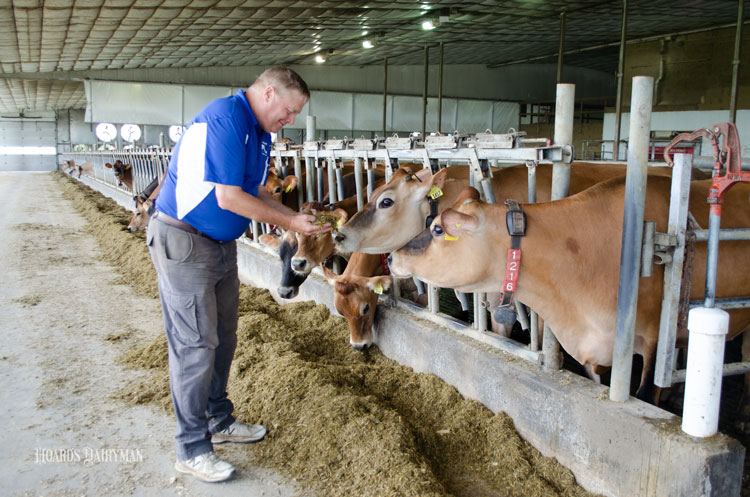
Do you have a point of view on hauling cost structure for farm gate milk? What about quality and volume premiums when it comes to your milk check? Lastly, do you have a preference of shipping to a dairy cooperative or selling directly to a processor as an independent farmer?
These are some of the questions we will delve into as we look to gather and share dairy farmer opinions with milk buyers.
To take our survey, go to Dairy Pricing Survey.
More about the survey
Prices dairy farmers receive for their milk are impacted by many market factors that have caused and will continue to create significant price volatility. Such price swings can lead to financial difficulties on the farm and for downstream handlers and processors. While minimum farm prices are determined through milk marketing orders, milk buyers can apply supplemental premiums.
Generally, volume premiums help address scale economies in manufacturing and improve market power in negotiations with downstream agents. However, volume premiums also may incentivize farm expansion. During oversupply conditions, that expansion may be harmful to the industry.
Historically, dairy farmers were incentivized through quality premiums to adopt best management practices. This is beneficial to processors as higher quality leads to higher yields and dairy products with a longer shelf life. However, the levels of quality at which premiums are offered and the size of the payments should reflect not only processing benefits, but also the ability (and cost) of producers to achieve them.
Hauling costs have a wide range
A relatively large deduct on the milk check revolves around the cost of assembly and hauling milk from farms to processing plants. Hauling costs can vary widely by farm depending on size, location (to other farms and plants), and the nature of the trucking fleet. How these costs are charged to farm suppliers by milk handlers is a lively debate and, at least for cooperatives, may include ideological perspectives of the nature of the farmer-owned business.
Historically, dairy cooperatives were formed by farmers with relatively homogeneous or similar characteristics. As cooperatives operate and adapt through time, membership tends to become more heterogeneous or divergent in terms of farm size, age, service needs, and production methods. Understanding the value of ownership in a cooperative . . . including member responsibilities and voice in strategic direction . . . is an important element to long-term cooperative membership. That said, some farms may prefer not to have ownership control of the milk processing business and the responsibilities that go with it.
A team of Cornell researchers is interested in learning more about the preferences of dairy farmers and their willingness to accept alternative premium payment programs, hauling charges, and handler business structures.
The survey is available at https://tinyurl.com/DairyPriceSurvey.
The results will be communicated broadly to the dairy industry and will serve as valuable guidance to dairy farmers and milk handlers when considering alternative pricing structures and their related market effects. Participating farmers have a chance to win one of five $100 VISA gift cards. Don’t wait, the anticipated closing date of the survey is February 15, 2020.





